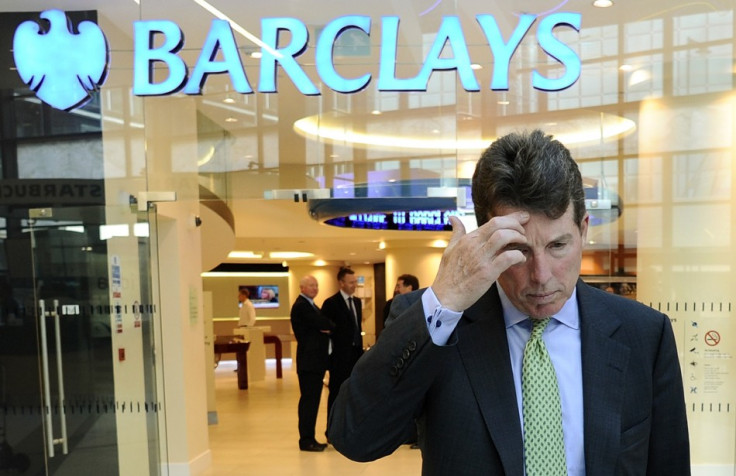Barclays Chiefs Scrap Their Bonuses After Record Fine For Market Manipulation

Barclays CEO Bob Diamond and three of the UK bank's most senior executives will reject their bonuses this year after the regulators in the US and the UK fined the group a record £290m for manipulating two of the most important interest rates in the global financial markets.
"I am sorry that some people acted in a manner not consistent with our culture and values," said Diamond.
He also added that he, Finance Director Chris Lucas, Chief Operating Officer Jerry del Missier and investment banking boss Rich Ricci have agree to forgo any bonus this year.
Barclays has agreed to pay penalties totalling £59.5m to UK's Financial Services Authority and a further $360m to US authorities related to misconduct in the London Interbank Offered Rate (LIBOR) and the Euro Interbank Offered Rate (EURIBOR) markets
Barclays said it had reached settlements with the FSA, the US Commodity Futures Trading Commission (CFTC) and the United States Department of Justice Fraud Section (DOJ) and the other panel members to the bodies that set various interbank rates after the authorities completed an industry-wide investigation into the setting of interbank offered rates across a range of currencies between 2005 and 2009.
Libor and Euribor valuations directly influence the value of trillions of dollars of financial deals between banks and other institutions.
"Barclays' misconduct was serious, widespread and extended over a number of years," said Tracey McDermott, acting director of enforcement and financial crime at the FSA. "The integrity of benchmark reference rates such as LIBOR and EURIBOR is of fundamental importance to both UK and international financial markets. Firms making submissions must not use those submissions as tools to promote their own interests."
"Making submissions to try to benefit trading positions is wholly unacceptable. This was possible because Barclays failed to ensure it had proper controls in place. Barclays' behaviour threatened the integrity of the rates with the risk of serious harm to other market participants," added McDermott.
© Copyright IBTimes 2024. All rights reserved.






